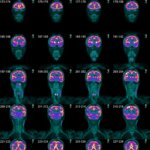A recently published study from the University of Bristol uncovered that anxiety levels of young adults had increased significantly just during the first lockdown pertaining to the COVID-19 pandemic.
The new study, publicized in the British Journal of Psychiatry, used data from COVID-19-based questionnaires which were initiated to get a more comprehensive insight into the impact the pandemic has on mental health.
The study concluded that, based on the respondents of the questionnaires, anxiety had worsened significantly and remained a concern during and even after the lockdown restrictions had ceased by mid-2020.
The coronavirus-related restrictions could prove to be horrific, particularly among those with a history of mental health adversities. Although anxiety was a major consequence of the pandemic-based restrictions, the research team found no evidence that depression was an increasing concern.
“The findings suggest that there is a need to protect mental health at this time (especially managing anxiety) and support mental health services,” according to a co-author of the study, as stated in a news release.
“The findings also provide evidence for supporting specific groups at greater mental health risk, such as those living alone. Support bubbles for single adults and single parents (which have been allowed from the outset this lockdown) could be beneficial to mental health, but we need to understand the role of social isolation better,” the co-author stated in the news release.


